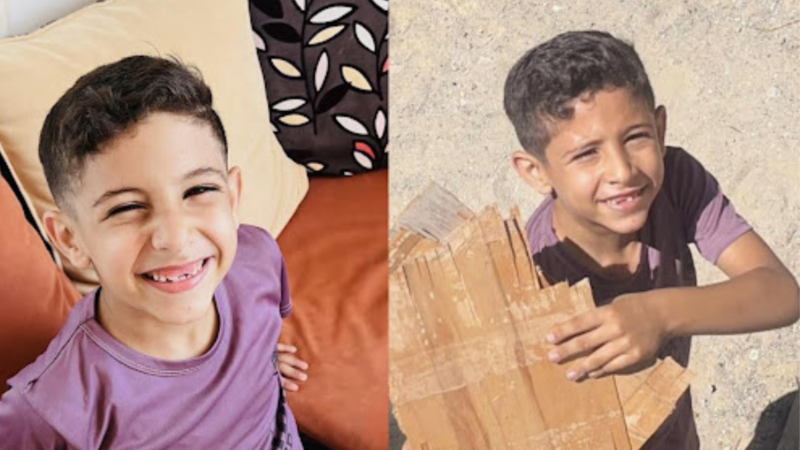The Electronic Intifada 11 October 2024

My cousin Ahmed, 7, begins each day by waiting in line for water.
When I asked my 7-year-old cousin Ahmed if he missed his home, I was stunned when he said no.
Since October 2023 he has been displaced numerous times by Israel’s genocide, from his home in northern Gaza to his grandmother’s place in Rafah, and now to our home in central Gaza, in Nuseirat.
“I can’t remember anything about my home,” he told me. “Maybe it doesn’t even exist anymore. I miss my grandma’s house because I remember every detail of it.”
A whole year of displacements and he can no longer even remember his first home. He can’t visualize his bedroom, his clothes, his toys and coloring books. I can still remember, though, I remember that his mom would bake early in the morning as he watched his cartoons, Elmer Fudd chasing Bugs Bunny.
He also loved to play with his older brother Ibrahim, 10, and his sister Afnan, in her last year of high school, in the backyard.
This was how his daily life used to be. An early bedtime and an early rising time for school.
Afnan was studying for her final exams when the genocide began in October 2023. Her goal was to study psychology, so she could help children like Ahmed process the trauma of nonstop Israeli violence.
Yet the Israeli occupation took away Afnan’s routine of study and education.
Afnan’s and Ahmed’s schools are now refuges for the displaced, repeatedly bombed by Israel and the sites of numerous massacres. Their places of joy and happiness now hold memories of blood and death.
Their childhoods have been revoked, now replaced with depression and exhaustion.
Afnan and Ahmed still wake up early, though not to go to school or to study, but to collect firewood so their mother can cook.
Each morning, Ahmed gathers his strength to begin the long, weary journey of standing in line for water and bread. Often, all they have to eat each day is a can of old beans. The markets are empty, and when food is on the shelves, it is too expensive to purchase.
Ahmed’s once spirited soul seems diminished. He is much more quiet now.
When I brought him some paper and crayons, so he could draw, and put on one of his favorite songs on my phone, he seemed lost. He sat on the floor and didn’t move.
Finally he drew something, a picture of him with his friends in a garden, playing soccer. One boy passes the ball to another, who shouts “Goal!”
As my beloved martyred professor, Refaat al-Areer, wrote: “The children pay the heaviest price. A price of fear and nonstop trauma that is reflected in their behaviors and their reactions.”
Ahmed is loved by his family, but it seems like this is not enough. To be so young and to have to live with such sorrow and responsibilities. When the day’s necessities of food and water are a question mark. He is bearing the responsibilities of someone much older, and I don’t believe there is any way to restore his childhood.
Esraa Abo Qamar is a writer in Gaza.



